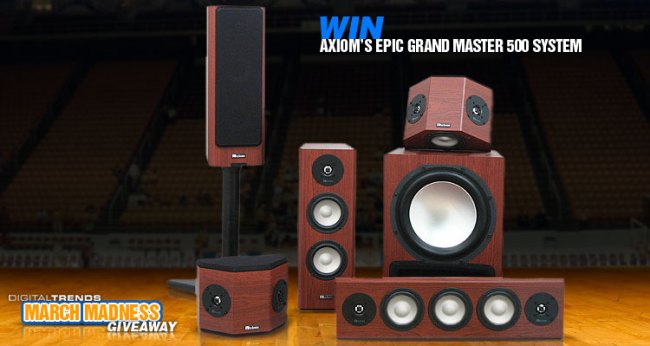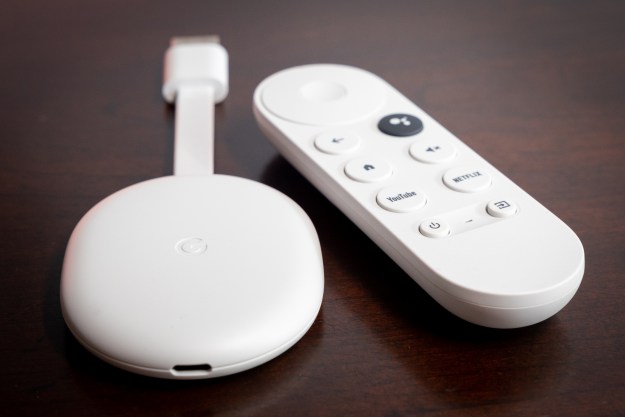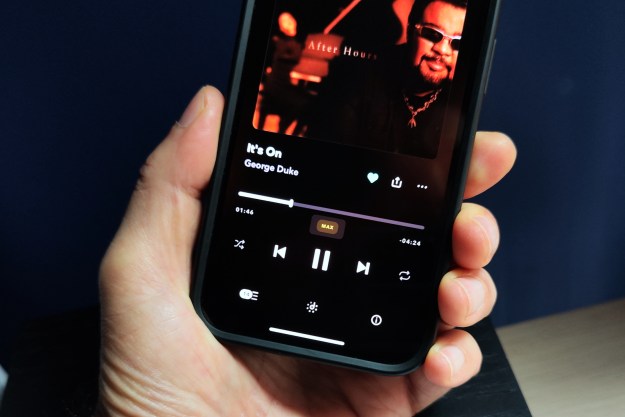
You may not recover the $10 you threw in your office’s March Madness pool this year, but you could still walk away from this year’s NCAA Championship with a sweet prize: an Axiom’s Epic Grand Master 500 speaker system worth over $2,500. We’ve been collecting entries all month and the April 4 deadline is coming up fast, so this is your last shot to enter!
Some lucky fan is going to take home the high-end, designer loudspeakers. The quality EP500 offers unbeatable surround sound and impressive subwoofer abilities, easily besting many competitor systems. And you won’t have to sacrifice half a room to house it: the EP500 is a space- and design-conscious system that won’t crowd your space or become an eyesore.
To enter, visit our contest page. You only need your name, e-mail, and phone number, and can create your own DT account or sign up for our newsletter. The contest runs from March 1 to April 4, and you can check out our Facebook Page and listen to the Cort and Fatboy show every Wednesday to hear more about it.
Good luck!
For more on the speakers check out our Axiom Epic Grand Master 500 Review.




